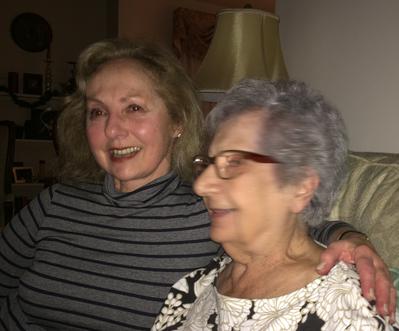Thoughts and Suggestions from an Aging Psychologist.
Our Journey from Dependence to Independence and Back
When you were a baby, and then a small child, you needed a great deal of help just to survive and get by. If you were fortunate, you had enough support to set the stage for a good enough life. As you grew and developed, you became more and more autonomous. But never completely autonomous. People develop and work in concert with others because we’re social beings and our context, our home, is society.
Going forward through life, we develop and count on the support of close others, friends, colleagues, and partners. This support collection helps us thrive and get by.
The Challenge of Old Age

Later in life, we reach a stage where we lose others: friends, colleagues, and partners. Our support group dwindles and sometimes disappears. This is the stage of old age. It is, perversely, a time when people increasingly need help to get by and even survive.
Some older persons do well with accepting the need for help and are able to comfortably recruit and connect with strangers. Others have trouble with this. They tend to avoid asking for help and will resist and struggle. It is not unusual for this to cause trouble and unmet danger.
The Changing Family Structure
In recent times, the family structure, long a constant and stable source of support, has become less structured and less available. People close to us historically might have depended on are no longer close. Close connections may be via social media, but the absence of presence in real time and space cannot meet our needs.
And so, increasingly the older person comes to need the attention of strangers and depend on these being known for not being structured and close.
The reasons for this are many and complex, and it needs to be said that the presence of technology writ large has something to do with defining intimate, in-person connections with successive approximations. However, some needs require physical presence. This does matter to old people, maybe even more so than at younger ages.
The Nurse Study: Understanding Patient-Caregiver Relationships
This suggests the first study I did as a postdoctoral fellow involving community nurses tasked with visiting older people in their homes. The nurses frequently spoke of their patients who were difficult to care for. Conversely, there were others of whom they were very fond and were partners in their care.
The study was designed to identify what personality styles or behaviors might distinguish the patients in each group by cataloging the nurses’ descriptions of their difficult patients and of their favored ones. On the negative side, the terms they used were variations of:
- Hostility
- Anger
- Rejection
- Suspiciousness
These affects and behaviors impede positive connections. This was not related to how ill the patient was. Even some very sick patients were able to relate to the nurses and appreciate their care.
The Inevitable Dependence on Strangers
The truth is that, if we live long enough, we will need to count on the care and kindness of strangers.
How does this begin? Well, it often starts after a fall, leading to a stay in a hospital, followed by a longer stay in a rehabilitation facility. Suddenly, after having been independent, competent, and able to meet one’s needs for many years, we find ourselves having to depend on others to help us and hope they will be kind.
It makes intuitive sense that how one historically has related to strangers, along a continuum from strangers being “friends not yet met,” to likely being dangerous and frightening and not to be trusted, will affect this transition.
The Transition to Dependency
Following the rehab facility, you might get discharged to home, with after-care services to help manage the transition. At this point, you meet strangers who come into the home as therapists and aides. The house might not be “elder-friendly.” There may be stairs that you can’t climb, or a bathtub you can no longer safely negotiate.
In time, you might decide not to drive anymore. Or be told you must stop. And then how do you do errands and keep medical appointments and social engagements? If you’re fortunate to have community services available, they will also involve connecting with strangers. If you have the financial means, you might decide to move to an assisted living community. And that often requires leaving the community you have lived in for a long time and starting over again, where everyone’s a stranger.
Making Connections Work for Us
How might we make this need to count on strangers work for us? Consider what we know that does not work. We know that being nasty, being cold, not making eye contact, not in any way recognizing the other person, closes the door on a potential relationship. Conversely, showing warm recognition and interest in another opens the door.
I’m under 5 feet tall at this point and I cannot reach the top shelves at my grocery store. So, I just kind of stand there in the aisle waiting for someone who’s taller than me (most people are!), and I ask if they might help me reach the item. Then I make a little joke about how for my next life I’m going to put in a request to be taller. But for right now “thank you.” And I smile. And they return the smile, and I suspect feel a touch of ‘good’ for having helped someone.
It’s the little things that work!
The Little Things That Make a Difference
- Eye contact and a smile
- Always a “thank you”
- Ask an “opening” question
- Give voice to an honest compliment
- A touch of humor lightens life
Contact me. I’d love to hear back from you, especially about any creative ways you’ve put this to use.

Photo by the author